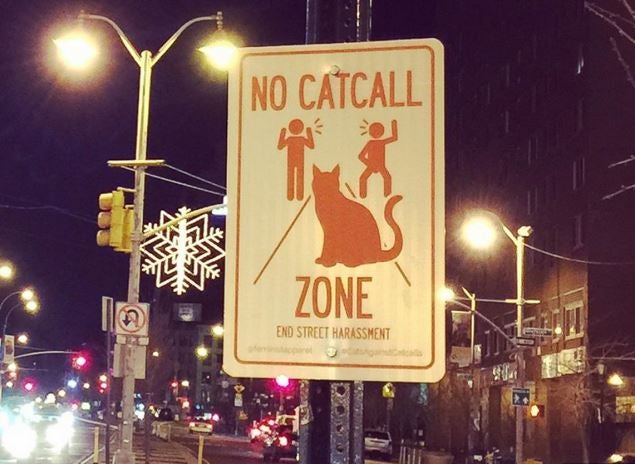Misogyny hate crime law necessary in light of attacks on women, say campaigners
'We have to recognise how serious misogyny is. It is at the root of violence against women and girls,' says campaigner

A group of MPs and campaigners have called for misogyny to be made a hate crime as new data reveals gender is the most common cause of hate crime for women.
Analysis of crime figures by the Fawcett Society estimated there were around 67,000 incidents of hate crime based on gender last year – with the women’s rights charity saying 57,000 of those were targeted at women.
This is more than almost any other category of hate crime but crimes based on gender are currently not recorded.
The Fawcett Society has sent a letter to Cressida Dick, the Metropolitan Police commissioner, and Sara Thornton, National Police Chiefs Council (NPCC) chair. calling for the police to support their calls for misogyny to be criminalise.
MPs Jo Swinson, Stella Creasy and Peter Bottomley, former home secretary Jacqui Smith, women’s rights campaigner Helen Pankhurst and Nottinghamshire Police and Crime Commissioner Paddy Tipping are among those to have signed the letter.
Sam Smethers, of the Fawcett Society, said the data should serve as a “wake-up call” but it is simply the tip of the iceberg.
“We have to recognise how serious misogyny is,” she said. “It is at the root of violence against women and girls. Yet it is so common that we don’t see it. Instead it is dismissed and trivialised. By naming it as a hate crime we will take that vital first step.”
The chief executive added: “Women are routinely targeted with abuse and threats online and in our streets. We know that black women, Muslim women and Jewish women are particularly affected. The way we tackle hate crime must reflect that."
Chief Constable Thornton said recording misogyny as a hate crime “cannot be prioritised when policing is so stretched”, in a statement responding to the letter.
She added: “The core policing that the public tell us they care about most is seriously stretched. We do not have the resources to do everything that is desirable and deserving.
“There are well reasoned arguments for recording misogyny as a hate incident, even when no crime has been committed, but it cannot be prioritised when policing is so stretched.
“Protecting women and girls from violence, harassment and sexual or domestic abuse continue to be priorities for the police.”
Others who signed the letter include the Green Party’s deputy leader Amelia Womack, executive director of Citizens UK Matthew Bolton, and Women’s Aid chief executive Katie Ghose.
Ms Ghose said: “Domestic abuse does not just happen in a cultural vacuum. The everyday sexism that women experience daily – from the catcalls on the street through to being groped and sexual harassed in public places – creates a culture where it is ok for men to demean women. In short, it normalises abuse.
“For far too long, women have not had the confidence to report men’s violence and harassment to the police for fear of not being believed or taken seriously.”
She said it was clear recognising misogyny as a hate crime provides survivors with greater confidence the criminal justice system will treat all forms of violence against women and girls more seriously.
Hate crimes and incidents are defined as those perceived to be motivated by hostility or prejudice based on a personal characteristic.
Five strands are monitored centrally: race or ethnicity, religion or beliefs, sexual orientation, disability, and transgender identity.
Police in Nottinghamshire, North Yorkshire, Avon and Somerset have already adopted misogyny or gender as a form of hate crime for recording purposes.
In November Ms Dick said “stretched” police forces should focus on violent crime rather than recording incidents of misogyny that are not crimes.
Helen Voce, manager of Nottingham Women’s Centre, said they were urging Ms Dick and Ms Thornton to meet with some of the many women across the country who are campaigning for misogyny to be classified as a hate crime.
Subscribe to Independent Premium to bookmark this article
Want to bookmark your favourite articles and stories to read or reference later? Start your Independent Premium subscription today.

Join our commenting forum
Join thought-provoking conversations, follow other Independent readers and see their replies